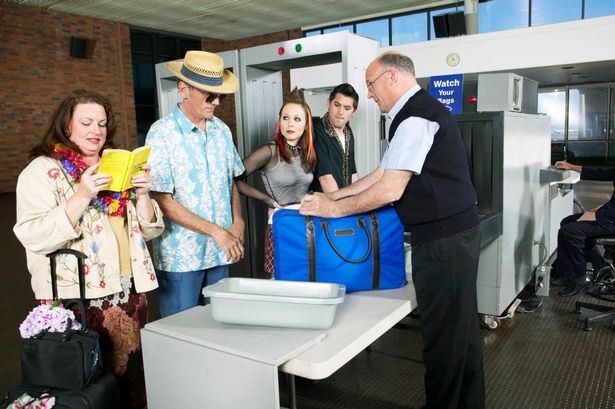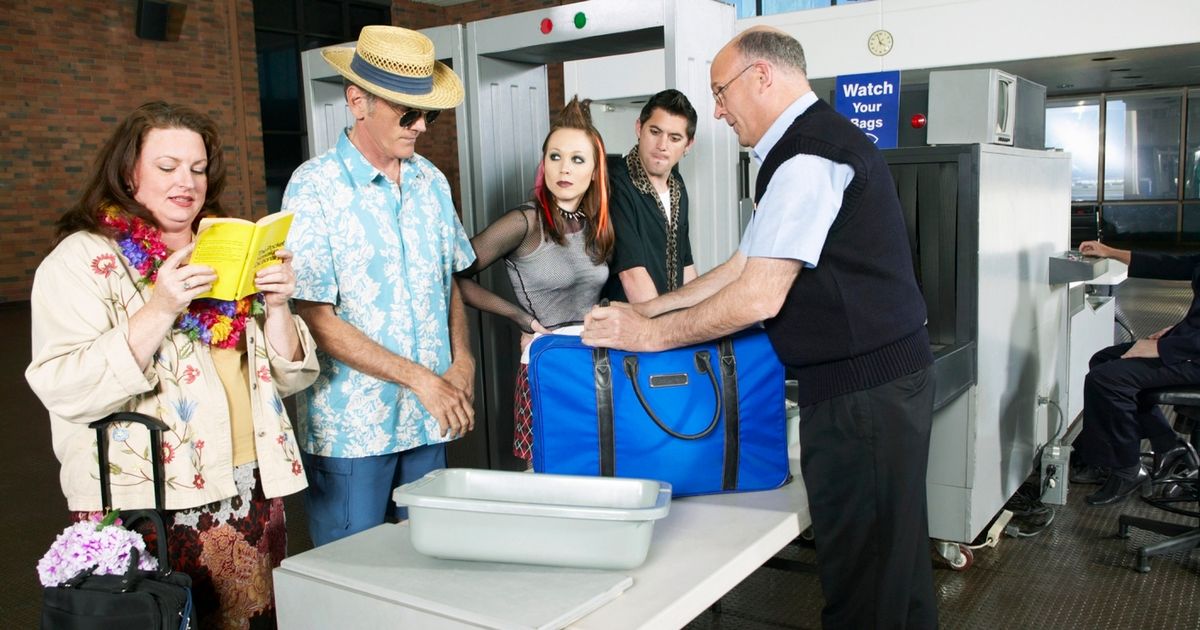The ban on food imports from the EU to the UK is due to an outbreak of foot and mouth disease Travellers have been warned not to bring certain items back into the UK when returning from holiday(Image: Getty Images)
Travellers have been warned not to bring certain items back into the UK when returning from holiday(Image: Getty Images)
UK holidaymakers returning this October half term have been told they can no longer bring certain everyday items back through customs – even if purchased in EU airports or duty-free shops. It means that travellers from popular destinations such as Spain, France, Italy and Greece are prohibited from bringing any food into the country, with officials threatening to impose hefty £5,000 fines.
The introduction of these rules has led some travel experts to express concerns about added confusion this October when the new ‘entry/exit’ (EES) system comes into effect from October 12.
It will require people travelling to Europe to provide more data, including fingerprints, and with some countries introducing new rules on issues such as proof of travel insurance.
The ban on food imports from the EU to the UK is due to an outbreak of foot and mouth disease (FMD), following a surge in cases across Europe, and is an attempt to prevent it from infecting animals in the UK.
This means that simple items which people would typically pack without a second thought, such as sandwiches, cheese and snacks like croissants, could potentially cause problems.
Holidaymakers have been issued a stark warning about potential penalties reaching £5,000 for attempting to transport certain goods through customs – even when purchased from duty-free outlets.
Current legislation states that travellers discovered carrying items including sandwiches, cheese, cured meats, raw meats or milk will be stopped at border control.
The six items banned from flights into the UK from EU
- All cheeses soft, hard or processed: Examples include brie and camembert, which are popular French varieties; mozzarella and parmesan, often associated with Italy; and manchego, a traditional Spanish favourite
- All meat products including cured, cooked or packaged types like salami, pâté, typical in France; chorizo and Jamón from Spain; or parma ham and prosciutto, commonly eaten in Italy
- Milk, yoghurt, butter, cream and other dairy items
- Food items containing meat or dairy like sandwiches
- Baked goods
- Salad
The forthcoming ‘entry/exit’ (EES) system is scheduled to launch on October 12, coinciding perfectly with the October half-term holiday rush.
This new framework will require all EU-bound travellers to submit biometric data including fingerprints, whilst certain nations like France are also introducing tougher border measures covering areas such as travel insurance and financial status verification.
Travel specialist Jane Bolton from boutique ski holiday company Erna Low cautioned: “You may think that a wedge of local cheese or a pack of cured meats is a harmless holiday treat, especially if it’s sealed and purchased at a duty-free shop.
“But under current biosecurity laws, meat and dairy products are banned from being brought into Great Britain from the EU or other restricted regions.
“If in doubt, don’t bring it. The rules apply even if the items are commercially packaged or unopened. You’ll be expected to dispose of banned foods at the border and in some cases, may face fines of up to £5,000 for non-compliance. If you’re unsure, visit the UK government’s official guidelines before packing.
“Grabbing a sandwich, pastry or cheese toastie before your flight might seem like a good idea, but if you don’t finish it before landing, you could be in breach of import rules.
“Even leftovers in your hand luggage are subject to restrictions.”
Get daily breaking news updates on your phone by joining our WhatsApp community here. We occasionally treat members to special offers, promotions and ads from us and our partners. See our Privacy Notice.
